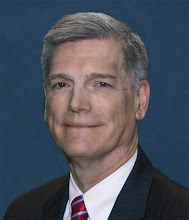 We empathize with the citizens of central Europe suffering during the current interruption in gas deliveries from Russia. A January 16 headline in The Washington Post tells it all: "Misery mounts in gas-deprived European nations." The 18-day disruption in gas flows, a result of disputes between Russia and Ukraine, is the second such disruption in the past three years. As my colleague Mark Flanagan notes in a recent blog post, European responses to this crisis include serious reconsideration of what nuclear power can contribute.
We empathize with the citizens of central Europe suffering during the current interruption in gas deliveries from Russia. A January 16 headline in The Washington Post tells it all: "Misery mounts in gas-deprived European nations." The 18-day disruption in gas flows, a result of disputes between Russia and Ukraine, is the second such disruption in the past three years. As my colleague Mark Flanagan notes in a recent blog post, European responses to this crisis include serious reconsideration of what nuclear power can contribute.We in the United States are not immune to disruptions in our energy supplies, either. Fifteen years ago this week, the New York Times wrote about the effects of severe winter cold gripping the northern U.S. Among the problems facing the grid at that time were frozen coal piles, fuel barges stranded in icy waters, and extreme electricity demand.
Hard times remind us of what matters. In these cold, dark days of mid-winter, what matters is the electricity that powers our economy and heats and lights our homes. In our non-stop civilization, dependability matters. When the coal freezes or the gas stops, when the wind dies or sun sets, you can still snuggle to the warmth supplied by 104 muscular nuclear power plants, 24-7-365.

Comments
Nitpick: That should be either 24-7-52 or 24-365. (Hours/day, d/week, w/year or h/d, d/y.)